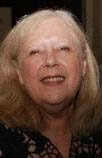 Part of the reason may lie in necessity. When I first began to freelance, it was necessary to take just about any project that came my way. As my options expanded, I decided I was basically interested in just about everything. Along the way, poetry became a sort of specialty—the study of it, the history of it and the writing of it. But most outlets for poetry are either small lit magazines that don’t pay or magazines like Poets & Writers who either have a steady stable of writers or rely on MFA types for content.
Part of the reason may lie in necessity. When I first began to freelance, it was necessary to take just about any project that came my way. As my options expanded, I decided I was basically interested in just about everything. Along the way, poetry became a sort of specialty—the study of it, the history of it and the writing of it. But most outlets for poetry are either small lit magazines that don’t pay or magazines like Poets & Writers who either have a steady stable of writers or rely on MFA types for content.I’ve often thought expertise can be sort of dangerous, at least for the reader. If a writer relies on a single expert for content, you will see only one perspective on a subject. This has become commonplace in media—toss in a quote by a high-profile authority and prove a point. But experts often disagree among themselves, and I think we’d be better off if varying, even conflicting, perspectives are included, especially in informational pieces.
I’ve survived as a generalist, and I don’t foresee changing my tactics anytime soon. I’m having an amazing, diversified journey through the lives of others, shaping their stories into content for readers.
And frankly, there aren’t a whole lot of experts I trust these days anyway.



2 comments:
Thanks for this perspective. It's nice to hear someone say something that goes against what everyone else seems to be saying -- and to make a darn good point of it with common sense.
One thing I've learned about this business: there are no absolutes. And I'm glad you found this useful; that is nice for a writer to know. best, Kay
Post a Comment